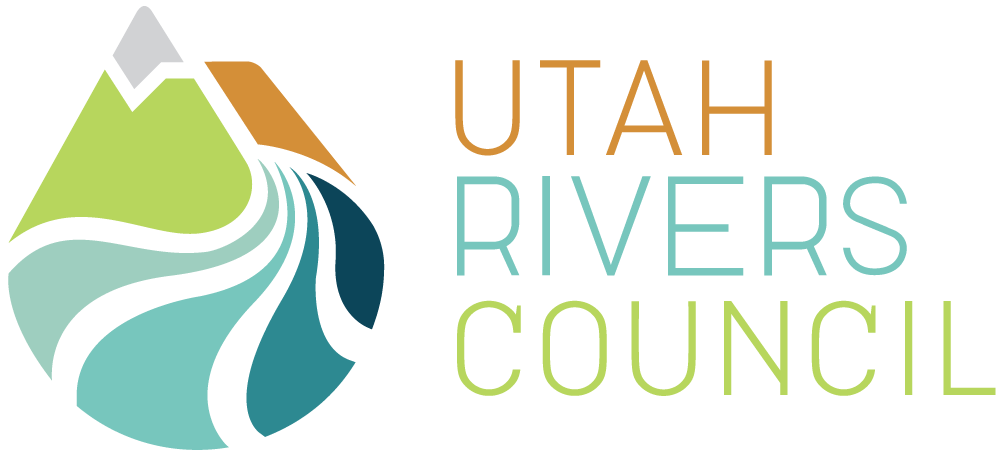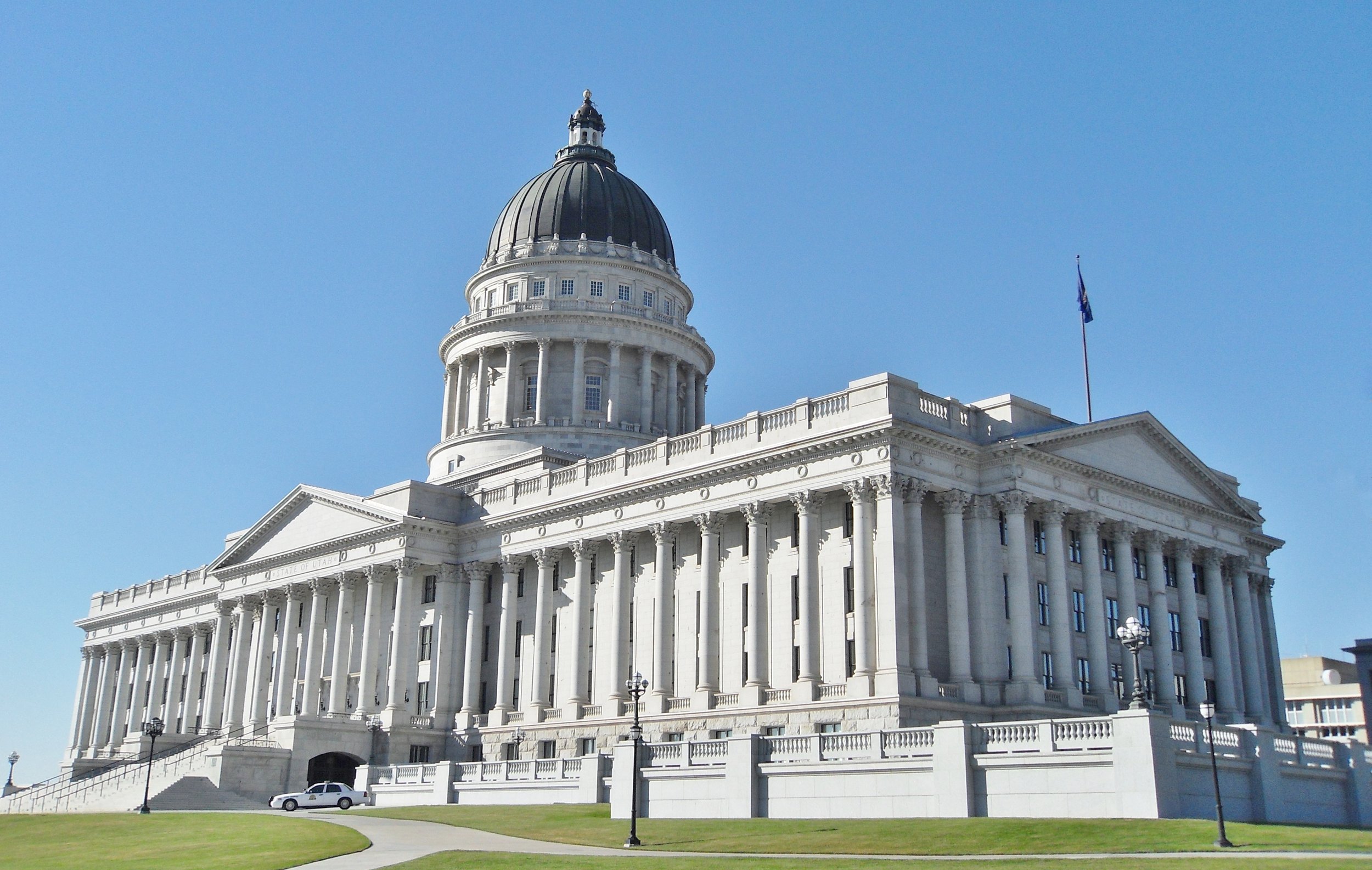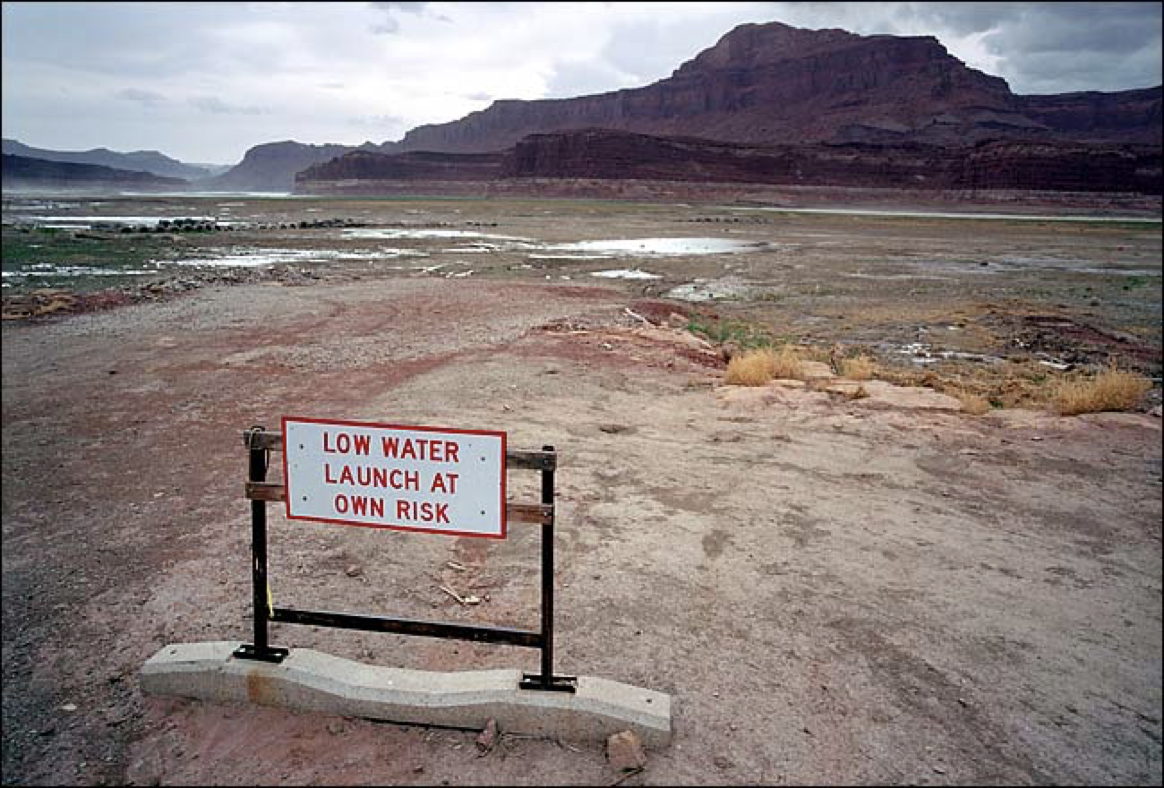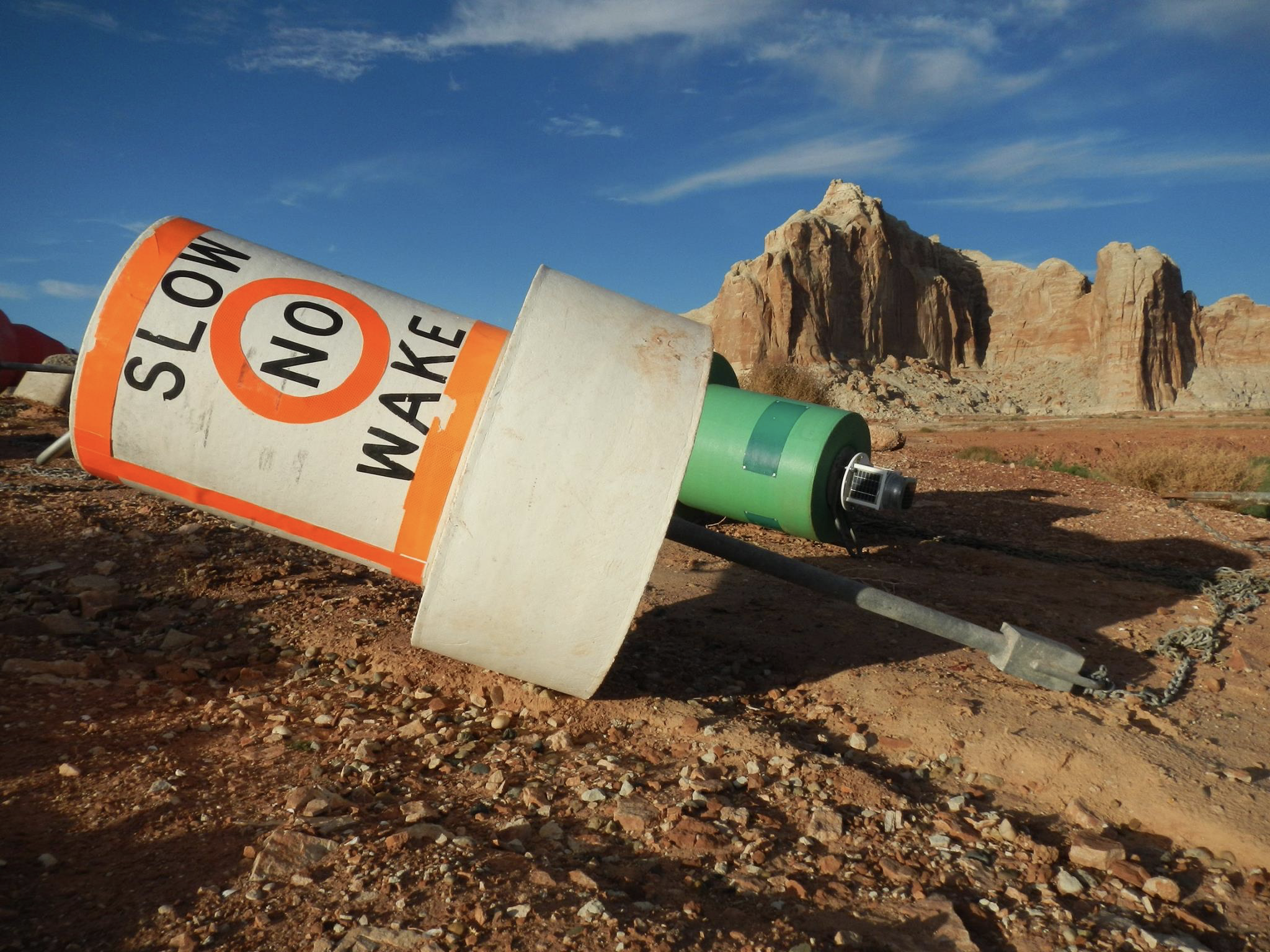The 2022 Utah Legislative Session Was NOT the Year of Water
With Utah legislators proposing more water bills this year than in past sessions, the 2022 Utah Legislative Session was billed as the “Year of Water.” Many claimed Utah would leap forward in conserving water and protecting our rivers and lakes. Some news stories promised big changes coming to Utah after decades of inaction and hostility to water conservation. So did Utah legislators finally buck the water development lobby that has opposed water conservation for the last three decades?
Unfortunately, NOT.
The “Year of Water” was a carefully choreographed charade to fool the public into believing the Utah Legislature is doing everything they can to conserve water, so they can charge forward with proposed Bear River Development and the Lake Powell Pipeline, claiming they have done everything else they could first.
Why would they do this?
Because an army of contractors, marketing firms, lobbyists, and water managers want $6 billion in new spending for themselves from these two water projects, funds courtesy of Utah taxpayers. Water conservation means eliminating the need for these water projects, and it means reducing water sales, leading water lobbyists to kill meaningful water conservation legislation for 20+ years.
The “Year of Water” was a carefully choreographed charade to fool the public into believing the Utah Legislature is doing everything they can to conserve water, so they can charge forward with proposed Bear River Development and the Lake Powell Pipeline, claiming they have done everything else they could first.
In the 2022 legislative session, there were some good bills proposed that could have taken some meaningful steps forward. Unfortunately, the substantive measures were mostly gutted, with some notable exceptions, and only a series of relatively weak conservation bills passed.
No legislation placed any emphasis on evaluating whether Bear River Development or the Lake Powell Pipeline could be avoided by water conservation, even though water experts outside of Utah literally snicker at these archaic and unnecessary proposals. Proposed Bear River Development will destroy vast wetland ecosystems at the Great Salt Lake, but nary a legislator had the courage to question this sacred cow, even though lots of lip service was given to the value of the Great Salt Lake.
The proposed Lake Powell Pipeline is being sought to deliver water to a population using twice the U.S. average of water and three times the water use of Phoenix. Yet the water conservation measures that passed the Utah Legislature are token and underwhelming as Utah legislators appear afraid of disappointing the powerful water lobbyists that prowl the hallways of the capitol. The bills heard and passed this session paled in comparison to water conservation efforts in other western states and the desperate need to eliminate wasteful water use to prepare for climate change.
The bills heard and passed this session paled in comparison to water conservation efforts in other western states and the desperate need to eliminate wasteful water use to prepare for climate change.
To affect the kind of water savings we require in Utah, our legislators needed to make adaptations to climate change effects on the Colorado River and permanently ensure water for the Great Salt Lake. They should have cut municipal water waste by ending property tax subsidies that ensure Utah has America’s cheapest water rates and highest per person water use. They should have stopped cities from requiring Kentucky bluegrass lawns and allowed rivers the legal right to exist. None of these things happened.
Below, we breakdown exactly how the legislature measured up to this tall order.
-
Our most recent climate report demonstrated that Utah is overdrawing its rights to Colorado River water because snowpacks are shrinking, reducing the Upper Basin’s available Colorado River water. This overuse will lead to the unavoidable forced curtailment of Colorado River water inside Utah. Instead of preparing for these water cuts, Utah is collecting some $40 million per year from taxpayers to advance a new water diversion that threatens all existing Colorado River water uses in Utah: the $3 billion Lake Powell Pipeline. Legislators ought to have prioritized putting measures in place to reduce our draw on the Colorado before that curtailment order is mandated.
The only bill that addressed the Colorado was SB 160, amending an undemocratic Utah water agency working to advance the Lake Powell Pipeline. The Colorado River Authority of Utah is run by Utah’s most powerful water lobbyists, and this shameful agency is working to advance the proposed Lake Powell Pipeline behind closed doors, with exemptions to public oversight and transparency. SB 160 creates a seat on the Authority for tribal representation—a worthy and necessary amendment — but the statehouse gave this shadowy agency a permanent budget increase of 50% each year to sue other parties to protect the Lake Powell Pipeline while the Authority refuses to let water experts they disagree with speak to them for more than 120 seconds.
-
The 2022 legislative session paid a lot of lip service to our capital city’s namesake lake. Legislators were even flown over the Great Salt Lake via helicopter to tour the sparkling water body’s historic decline. The consequences are well known: if we don’t save the Lake, toxic lakebed dust will degrade the Wasatch Front’s air quality, mineral industries will suffer, and critical wetland habitat for millions of migratory birds will be destroyed.
Several bills strove to address the Lake. The Utah Rivers Council proposed the strongest piece of legislation to save the Lake—a drought contingency plan that would restore the Lake to healthy levels. But at the behest of the water lobby, our sponsor abandoned the bill and left us no time to find another sponsor, making way for Speaker Wilson to crown himself the savior of the Lake.
A week after our drought contingency bill was killed, Rep. Wilson announced his new bill: HB 410. The bill creates a single water trust of $40 million to be managed by a collaboration of non-profits and water agencies. These water rights are temporary, making the bill a momentary band-aid for an aquatic ecosystem that desperately needs permanent protection. At every committee hearing for HB 410, the Utah Rivers Council requested an amendment allowing these water rights be made permanent, but our comments were ignored.
Rep. Ferry’s HB 33 amended Utah’s weak instream flow law to allow another state agency to hold permanent instream flow rights. Twenty-two years ago, the Utah Rivers Council proposed a strong instream flow law that would have given rivers and lakes the legal right to exist. That was quickly gutted by the water lobby.
Outside of a handful of state agencies, HB 33 only allows temporary water rights for Utah’s rivers and lakes by the vast majority of water rights holders. By comparison, other western states passed legislation last century that allows water rights holders to legally leave water instream on a permanent basis. HB 33 is a small step forward, but let’s not kid ourselves: it’s 25 years too late, and our legislators obviously don’t want our lakes and streams protected like Montana, Idaho, or Colorado.
-
Utahns lead the nation in municipal water waste. We have America’s cheapest water rates because of our policy that allows the lowering of water rates by the collection of property taxes on homes, businesses, and automobiles. Roughly 70% of Utah’s municipal water use is to water thirsty grass landscapes (and often sidewalks, roads, and parking lots). Stopping this water waste would render Bear River Development and the Lake Powell Pipeline utterly superfluous. The legislature heard some small bills aimed at reducing this waste, killed several, gutted others, and passed a few.
FAILING TO FIX LEAKS
HB 115 was a commonsense bill on its third annual attempt to pass the Utah Legislature. The bill is the most innocuous and simple measure. It just tried to take the first step at eliminating leaky pipes in cities by asking cities to determine how much water waste is acceptable and then devise a plan to deal with unacceptable waste from leaky pipes. This minor bill failed on the House Floor, demonstrating that Utah's water lobby chooses waste over water efficiency every time.
Similarly, SB 73 would have required all new construction and remodels to use toilets, urinals, faucets, and shower heads with lower maximum flow rates, designated by the EPA’s WaterSense program. Utah is the only Colorado River basin state to not pass a law either requiring WaterSense fixtures or allowing municipalities to pass ordinances requiring WaterSense fixtures. This bill was shelved in committee.
SYMPATHY FOR GRASS LANDSCAPES
There were three bills designed to address water-intensive grass landscapes, each of which was heavily gutted along the way. HB 95 would have prohibited cities from requiring residents to plant grass, but it failed in committee. This measure has been introduced five or six times and defeated every time. As Utah cities require grass to be installed, other western cities are paying homeowners to remove their grass. HB 121 prevents any new state facility from planting grass landscapes, and it directs the Utah Division of Water Resources—proponent of Utah’s Lake Powell Pipeline and Bear River Development—to award $5 million to homeowners wishing to remove their grass up to 50% of the removal costs. Finally, HB 282 was written to prohibit municipalities from requiring more than 30% of a property-owner’s land to be grass, but that measure was removed in an amendment, gutting the bill so it remains little more than a minor landscaping measure.
SECONDARY WATER METERING
After three previous attempts, HB 242 passed the statehouse and will one day require secondary water users to have meters which measure how much water they use. A last-minute Senate substitution creates an exemption process for water users in one-third of Utah, which significantly weakens the bill’s potential. That said, metering has been shown to reduce use and we are glad to see metering finally implemented.
Heralded by some as the single-handed savior to the Great Salt Lake, HB 242 is a step forward, but it’s a baby step. Even prior to the gut-punch substitution, knowing how much water is being wasted can only meaningfully reduce waste if it is tied to market-driven pricing. It took $200 million to goad these wasteful water users into measuring their water use. This raises the simple question – couldn’t we just have spent $200 million to buy out some of these secondary water systems and put the water in the Great Salt Lake?
LOWERING WATER CONSERVATION GOALS
Finally, SB 89, which passed the statehouse, undermines Utah’s already embarrassingly weak water conservation goal. The bill allows individual municipalities to adopt water conservation goals that are weaker than the statewide goal of 0.5% annual water use reduction—a pitiful objective compared to other western regions which reduce their water use by 2% or more per year. Allowing cities and towns to conserve any less than 0.5% is absolutely unacceptable, but it advances the water lobby agenda to avoid saving “too much” water and making the Lake Powell Pipeline and Bear River Development unnecessary.
What CAN WE DO NOW?
There is inherent danger in congratulating our elected officials for the baby steps they took this year. If we stop pushing—if we let our leaders think they’ve done enough—they will come to us and claim that water conservation is not enough to provide water for our future and that Bear River Development and the Lake Powell Pipeline are essential.
There is so much more our legislature needs to do to meaningfully conserve water. As the voice for Utah’s rivers and lakes, we cannot stop applying pressure. If we do, we are letting our legislators get away with the bare minimum while they feed us apathy, cowardice, or ignorance.
There is so much more our legislature needs to do to meaningfully conserve water. As the voice for Utah’s rivers and lakes, we cannot stop applying pressure. If we do, we are letting our legislators get away with the bare minimum while they feed us apathy, cowardice, or ignorance.
Click the link below to help us continue the fight.



